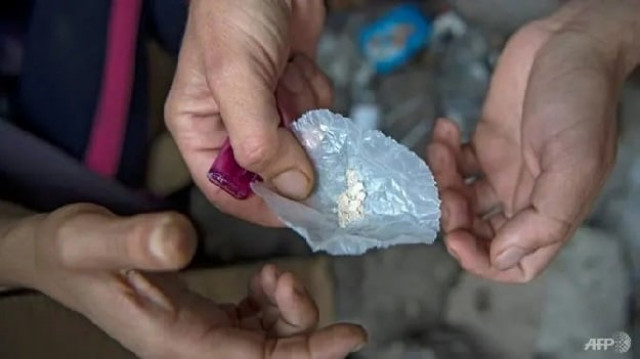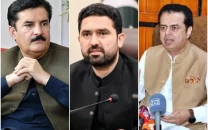Drug abuse triggers mental illnesses among youth
Poor law enforcement, wide circulation of drugs has disturbed the psychological wellbeing of young adults

For most young people, minor quarrels with parents over study routines, sleep schedules and even friend hangouts are a normal part of growing up, however, when children start taking drugs secretly, the associated behavioral changes and psychological turmoil are hard for any caregiver to ignore.
Akram, the father of a weed addict, recalled the harrowing experience of discovering his 24-year-old son's addiction. The boy, who was an IT student at a private university, had started acting strange over time, and had become a source of agitation for his father. "I had been monitoring his silence and mysterious movements for several months. Whenever he went to his room, he used to lock the door. One day, I knocked on his door and when he finally opened the door after 10 minutes, I discovered a powder-like substance in a plastic packaging in one of his drawers. Learning of his addiction was no less than doomsday for me. I consulted a doctor and started his treatment. I cannot say whether my son will get rid of this addiction or not, but this is an extremely painful process for parents. Therefore, the government should strictly monitor the circulation of drugs while parents should keep a close eye on their children and the circle of their friends," advised Akram.
According to a recent report published by the United Nations and the Government of Pakistan for 2022-24, about seven per cent of people between the ages of 15 to 64 use some kind of drug in Pakistan, out of which nine per cent are adult men and 2.9 per cent are adult women. The most commonly used drugs include hashish, crystal, ice, or cannabis, and sleeping pills and other tranquilizers.
Professor Dr Iqbal Afridi, Former Head of the Department of Psychiatry at the Jinnah Hospital revealed that nearly 3.6 per cent of the adult population uses cannabis, one per cent of the population uses opiates, while 23.41 per cent of the population uses tobacco.
"Research has shown that 78.8 per cent of narcotic addicts are men, with young people aged 25 to 54 being most affected. In Karachi alone, 19 per cent of the population is using drugs. Recent research has found that there is a very close relationship between drug abuse and mental health problems. Approximately 28.6 per cent of people addicted to drugs face anxiety disorders while others experience depression, personality disorders, and psychotic disorders. The relationship between drug abuse and mental illness is complex, with factors such as stress, family problems, and socioeconomic problems contributing to both the problems," informed Dr Afridi.
Imran Waseem, a member of an NGO battling drug abuse, highlighted several causes behind deviant behaviours among the youth. "Children often get fed up with domestic disputes, which lead them towards substance abuse. In addition, children from low-income families suffer from feelings of deprivation hence they turn to drugs as a coping mechanism. In other cases, peer pressure is also a factor, which leads children to take drugs out of curiosity.
Children who cannot get their hands on drugs often buy sleeping pills from medical stores, which are commonly available. Children who use substances often exhibit strange behaviours at home, with many staying awake at night and sleeping during the day. Therefore, parents should counsel such children, spend quality time with them, and involve them in various social activities," urged Waseem.




















COMMENTS
Comments are moderated and generally will be posted if they are on-topic and not abusive.
For more information, please see our Comments FAQ